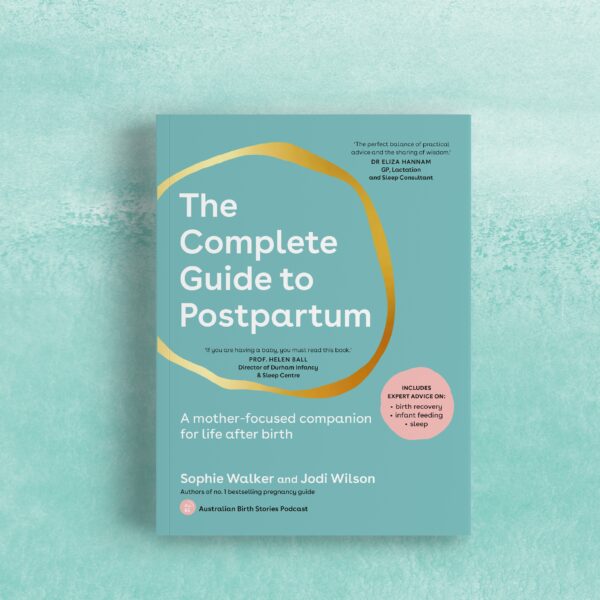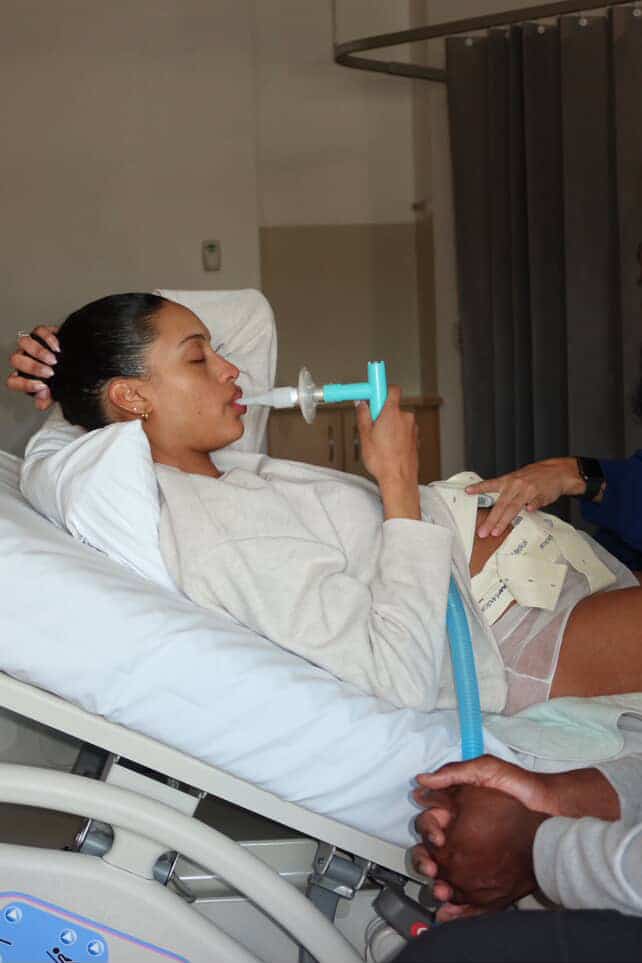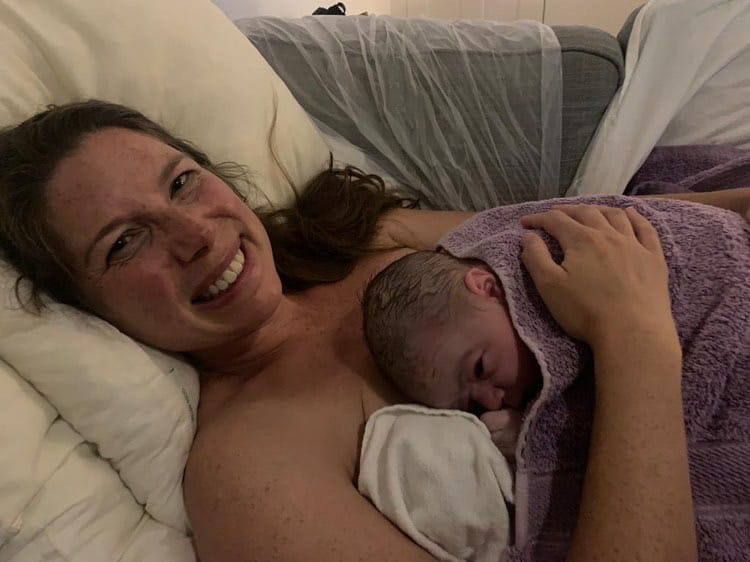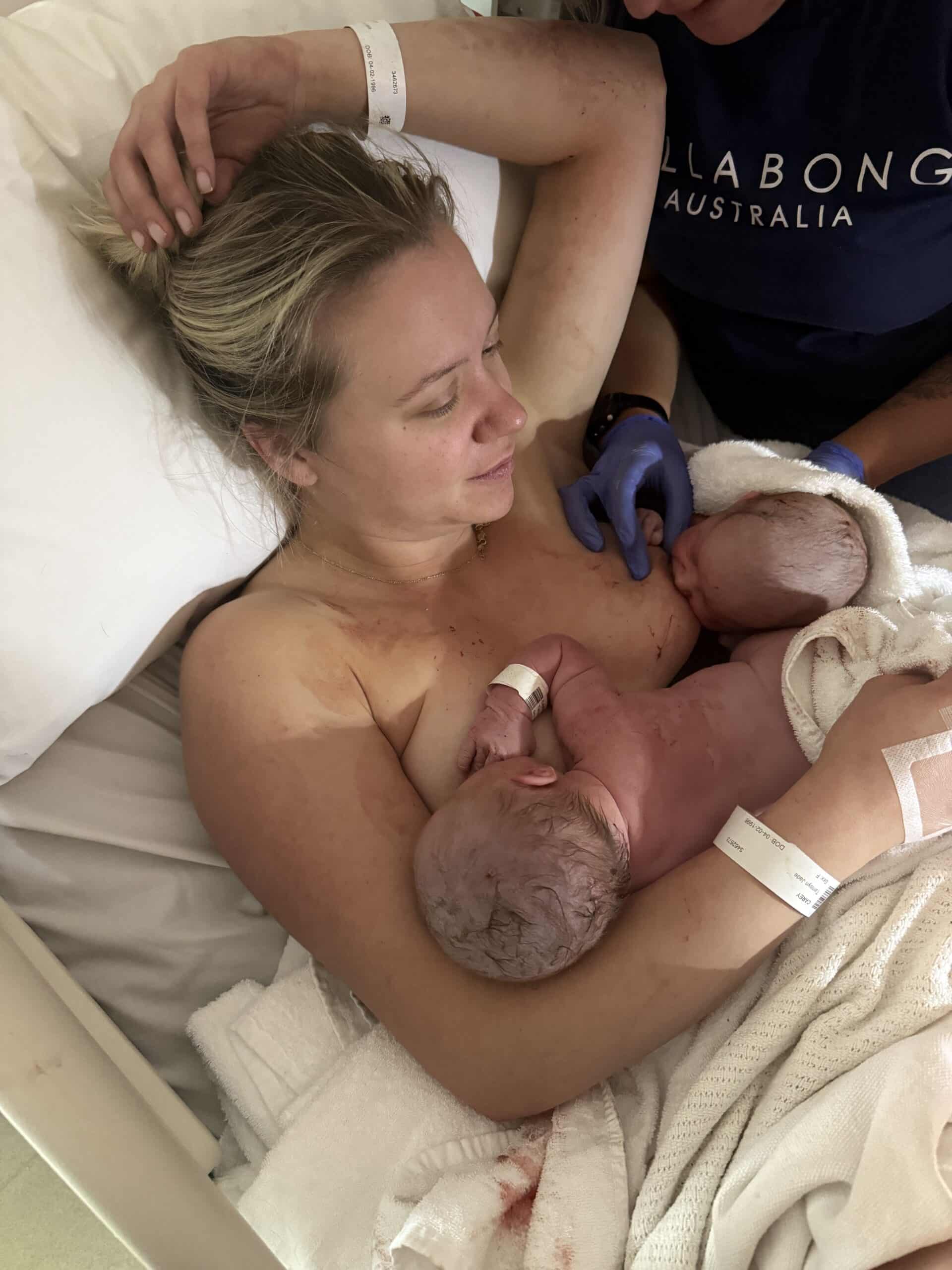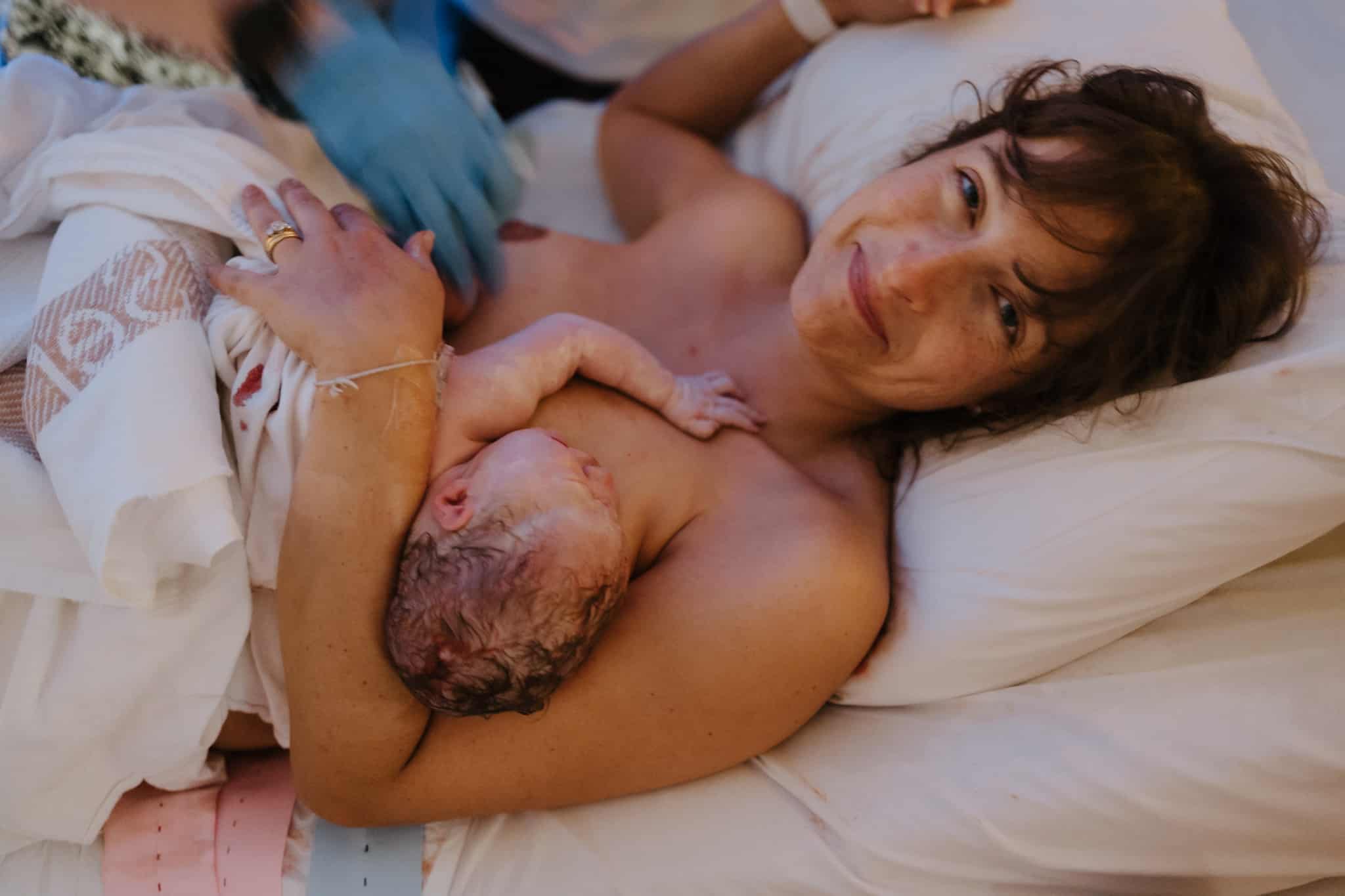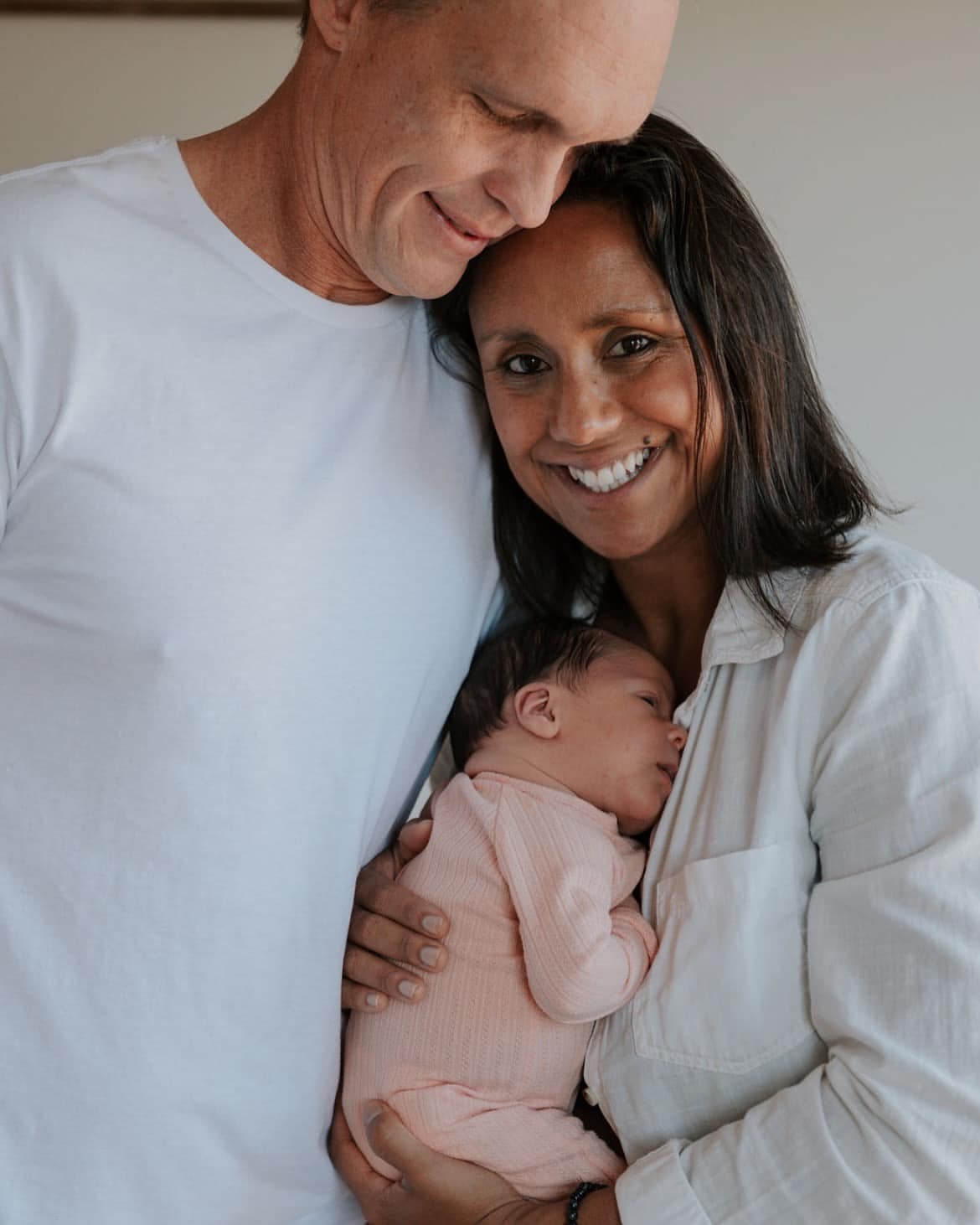Podcasts Rebecca’s three positive births through MGP
EPISODE 553
Rebecca’s three positive births through MGP
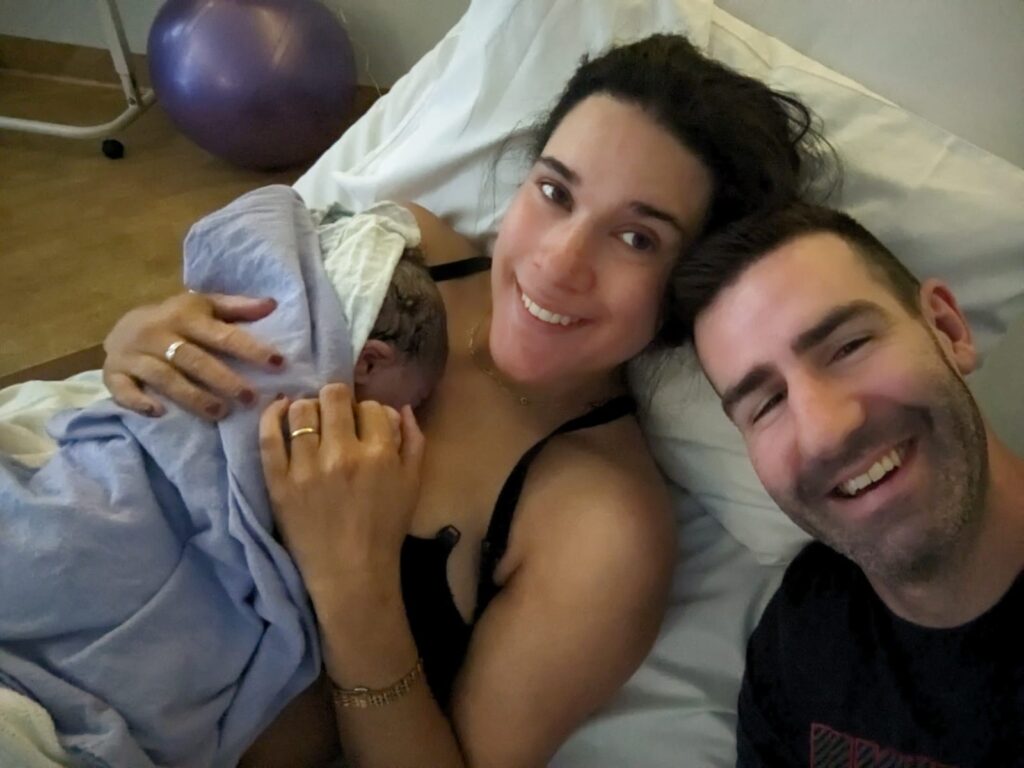
Rebecca’s path to motherhood began shortly after marrying Brendan, a paediatrician, in late 2020. Her first pregnancy came with unique challenges – she had a rare condition called exercise-induced anaphylaxis, which initially placed her in a high-risk category at the Mercy Hospital in Melbourne.
“I was an allergy kid growing up, the only one with all these food allergies,” Rebecca explains. “When I was about 19, I was playing netball one day and I couldn’t breathe… I had to actually get off the court because I really couldn’t breathe, looked in the mirror in the bathroom, had welts all over and I was going into anaphylactic shock.”
This condition, combined with the height of COVID restrictions, created significant anxiety during her first pregnancy. Rebecca found herself caught between two birth philosophies – her family’s natural birth experiences and the medicalised celebrity births portrayed in media. Seeking to fill the knowledge gaps, she discovered the Australian Birth Stories podcast and The Birth Class.
“I knew about birth in a sense. My sister has two kids. My mum and sister all had natural deliveries. But I also had the other side of the birth stories I’d heard in the media – all celebrities that went to a private hospital and had an epidural, did their makeup, did their hair, went in, had a baby.”
Her first labour began spontaneously at 41+3, after several stretch and sweeps. Rebecca laboured at home with her TENS machine before heading to the hospital. After two hours of pushing, baby Theo was born, though there was a brief concern about shoulder dystocia.
“The obstetrician said, ‘oh, it looks like we’ve got a bit of shoulder dystocia.’ And he pulled out his scissors and said, ‘we need an episiotomy.’ And I said, ‘no’… my husband said to him, ‘she doesn’t give consent.’ So he said, ‘okay.’ And while they were talking about getting a vacuum, I just pushed with everything I had.”
Following the birth, Rebecca experienced a postpartum haemorrhage that was frightening but ultimately resolved without surgery. Despite this challenging moment, she reflects on the birth positively.
For her second pregnancy, Rebecca was able to join the Midwifery Group Practice at the same hospital, working with midwife Jo, whom she describes as “exactly what I needed.” This labour was much quicker – arriving at the hospital at 11am and giving birth around 1pm.
“Jo had the room set up, like it was dark. She was just standing there, had everything set up. And I remember I just walked in and I went on the floor, hands and knees. She’s like, ‘yep, everything’s here.'”
Baby Reuben weighed 4.43kg (9.8lbs), and despite his size, Rebecca had a smooth birth with no complications.
Her third pregnancy came quickly after, and this time she was diagnosed with gestational diabetes, which she managed through diet and exercise.
“Every night I started going for a walk and it solved so many of my issues actually – it stopped my restless legs at night, my reflux, the insomnia I was having. It sorted it out a lot for me.”
After three stretch and sweeps, Rebecca went into labour following her final appointment at 40+4. The labour progressed quickly, and she used visualisation techniques to stay focused during contractions.
“As they were coming, and they were really long, I just kept picturing my sons, saying goodbye to them in the morning, and I just kept picturing people and like a prayer, just kind of praying for people that came to my head.”
Baby Josie was born just 30-40 minutes after arriving at the hospital. The family was overjoyed to welcome their first daughter.
“We were just in shock. She was a girl. All boys on my side of the family. My husband was an only child. So it was all boys so far, the first girl. And we were just so happy. It was the best feeling.”
Rebecca’s postpartum experience with Josie has been different from her previous babies – she experienced the “baby blues,” mastitis, and more challenging breastfeeding. Despite these challenges, she’s embracing the newborn stage while managing life with three children under four.
Throughout her story, Rebecca emphasises the importance of informed choice, continuity of care, and trusting her body. Her experiences showcase how each birth and postpartum journey is unique, even for the same mother.
“I think I’ll look back on such blessed moments of my life. And that’s a lot thanks to you and our setting and what we have access to in Australia here. It’s been such a lovely period.”
Episode Sponsor
Topics Discussed
IVF, Navigating Birth Plans, Same-Sex Conception
Categories
Related Products
-
The Complete Guide to Postpartum: A Mother-Focused Companion for Life After Birth
$25.00Full of expert advice, mothers’ stories, and evidence-based information that will guide you into motherhood with confidence.
Join the conversation
Sign up to get the latest updates, freebies, podcast releases straight into your inbox
@AustralianBirthStories
Follow along with us
@AustralianBirthStories
Follow along with us
@AustralianBirthStories
Follow along with us
@AustralianBirthStories
Follow along with us
@AustralianBirthStories
Follow along with us
@AustralianBirthStories
Follow along with us
@AustralianBirthStories
Follow along with us
@AustralianBirthStories
Follow along with us
@AustralianBirthStories
Follow along with us
@AustralianBirthStories
Follow along with us
@AustralianBirthStories
Follow along with us
@AustralianBirthStories
Follow along with us
